Don’t Just Break the Rules…Change Them!
You’ve been reading about this sustainability thing, right? Everyone from the New York Times and your local evening news to the magazine you are holding in your hands seems to be telling you that this is the next big thing that consumers are clamoring for. However, you might be sitting there thinking, “I keep hearing about market demand and higher margins, but all these sustainable products are just sitting on my shelves.” What’s gone wrong?
Sustainability, green marketing, eco-friendly: These words always seem to come with a rule book, predetermined measures of what fits and what doesn’t. Chemicals are bad. Organic is good. Manufacturing is bad, but anything handmade by artisans using heirloom tools from reclaimed materials is definitely a winner. Do you ever feel like the rules are stacked against you?
The problem for many garden centers is that your customers just aren’t interested in the products that play by the rules. Your shelves bear dust-covered reminders of sustainable products that no one wanted. The solution? Maybe it’s time to do what independent garden centers do best: change the rules. Just ask Sandy Chilewich.
Try Another Approach
Sandy’s vinyl placemats have exploded onto the market. You may not know them by name, but chances are your local upscale bistro or home-goods store is setting the table with them. The designs are great, her color palette is sophisticated and they are as durable as can be. Even better? They’re green.
No, not the color… These placemats are being marketed as a green solution for businesses and homeowners. But they are vinyl, right? You know, one of the seven deadly sins of sustainability? However, Chilewich is touting the fact that her placemats can be wiped clean.
I’m not making this up.
You’ve got hundreds of thousands of websites out there warning against the intractable evils of PVC, and they give us, “You can wipe them clean”? But look at this another way. While washing the occasional placemat at home may not have a big impact on the environment, laundry services for restaurants and hotels use a pretty serious amount of water and energy and dump lots of chemicals, used as cleansers, into the environment.
Wiping placements clean starts to add up when we are talking hundreds of thousands of uses each day. Add to that the fact that PVC lasts almost forever, and you’re significantly reducing manufacturing and transportation. In other words, Sandy’s got herself a pretty sound argument.
Now, I would never advocate deceiving anyone, especially your customers, but it seems like Sandy may be on to something here.
Change the Rules
With her placemats, Sandy redefined the rules of sustainability her customers used. She did it by identifying a very real impact her products had on reducing energy, water and chemical use. More importantly, she did it in a way that mattered to her customers. Washing placemats or tablecloths isn’t only harmful for the environment; it’s expensive and time consuming. Sandy helped her customers cut service and labor costs while helping to make their table settings more fashionable.
The rules are working against you when they are putting products on your shelves that don’t sell. But if you change the rules, be sure it accomplishes three specific things:
Be authentic. Your customers will smell a marketing ploy from a mile away. If your argument couldn’t carry water in a bucket, the only person you are kidding is yourself. Identify a very real sustainable impact your products can deliver for your customers.
Make it matter. If customers aren’t buying your “green” products, they aren’t making a difference and neither are you. Like Sandy, find sustainable impacts that make a difference for the environment and for your customers.
Sustain your business. It’s been said before, and I’ll say it again: You’ve got to stay in business if you want your business to change the world. The key is to find sustainable products and services that your customers are willing to get behind and support with their wallets.
Ugly Plants Don’t Sell
About a decade ago, a group of organizations, including the Nature Conservancy, recognized that several invasive plants had been introduced in the United States and were threatening native plant populations. The solution, they decided, was to promote the use of native plants and seek legislative solutions to ban the sales of invasives. If you are reading this in the Northeast, you are all too familiar with this situation.
Along comes sustainability, and you think, “I’d really like to get in on this by selling more native plants.” There’s just one problem: Many of the commonly sold native plants, from woodland ephemeral to prairie natives like Echinacea pallida and Rudbeckia hirta, just don’t interest today’s color-crazed consumer looking for a camera-ready HGTV landscape.
Time to change the rules again. If your customers don’t want to buy native plants, then stop defining sustainability by cut-and-dry native versus invasive. One option is to sell local. According to Susan McCoy of the Garden Media Group, local is in. “Consumers are becoming increasingly aware of the environmental footprint businesses have on the environment, and about the benefits of buying locally grown,” she says. Locally grown still allows you to stock the Knock Out roses and Wave petunias your customers are asking for.
So, locally grown meets the first two criteria for successfully changing the rules. It certainly makes a real difference in reducing fuel consumption and carbon output. Local also matters to many consumers around the country. But is it sustainable for your business? If the answer is yes, start printing up those “locally grown” signs right now. If not, it’s time for plan B.
Let’s take one more look at locally grown. While locally grown plants are abundant in Portland, those same high-quality, Oregon-grown plants just aren’t local on the East Coast. Now, you could drop all of your current suppliers, but that probably would hurt your business and the quality of products you offer your customers.
The solution is to find another approach that is authentic, matters to your customers and sustains your business.
Water Works
A third option, if your customers aren’t buying up native plants and sourcing locally grown crops doesn’t work for your business, would be to focus on water needs.
Authentic impact. Water is becoming a big issue for many communities across the country. While the Southeast is experiencing a dramatic lack of water right now, there are many businesses in wetter regions of the country feeling increased pressure as population density increases.
Make it matter. When politicians are holding prayer services as a solution to water shortages, it makes the front pages and lets your customers know this is a serious issue. More than ever, your customers are aware that they need to be water conscious in their landscaping choices.
Sustain your business. Offering plants with limited water needs, once established, benefits you in many ways. It certainly allows you to stock the shelves with plants people want to buy. It also makes you important to your customer. Plant selection depends on soil and exposure, and that requires expertise that voilà is what differentiates you from your competition. To add icing to the cake, soil amendments have been shown to increase soil’s water retention. This kind of sustainability comes with an add-on sale.
Sustainabilility, which can benefit the environment and your sales, is within your reach. Find the solution that works for your customers and for you. And when you feel like you just can’t win, simply change the rules. After all, they don’t call you independent for nothing!

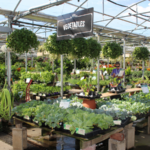

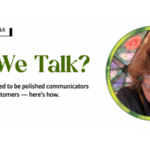


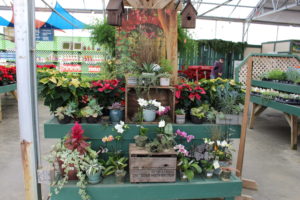
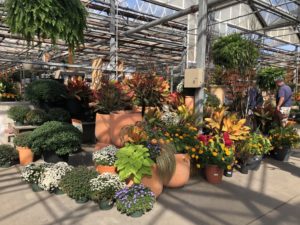
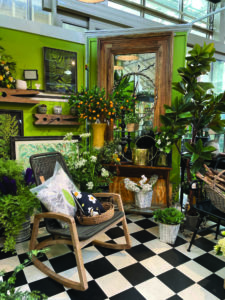
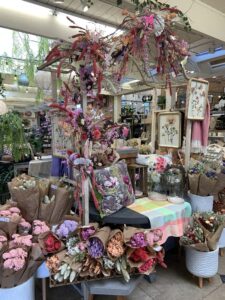

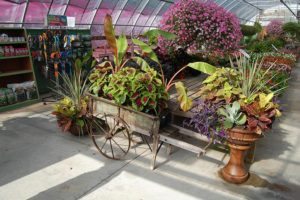
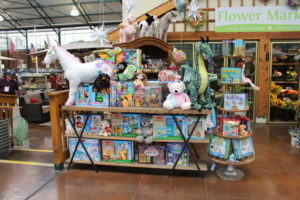
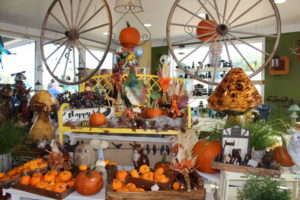
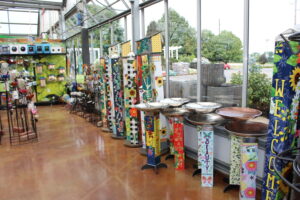
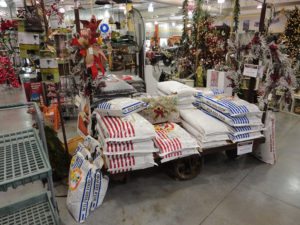

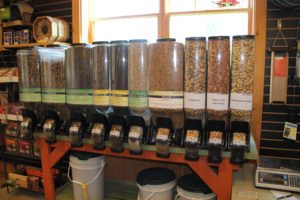
 Videos
Videos





